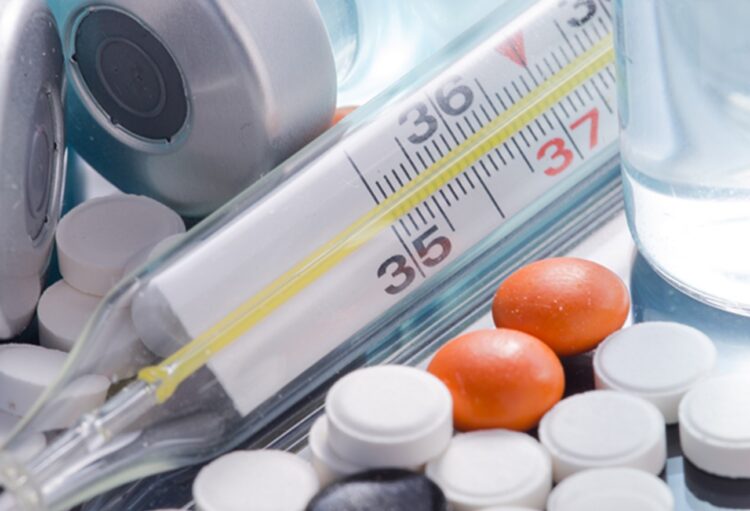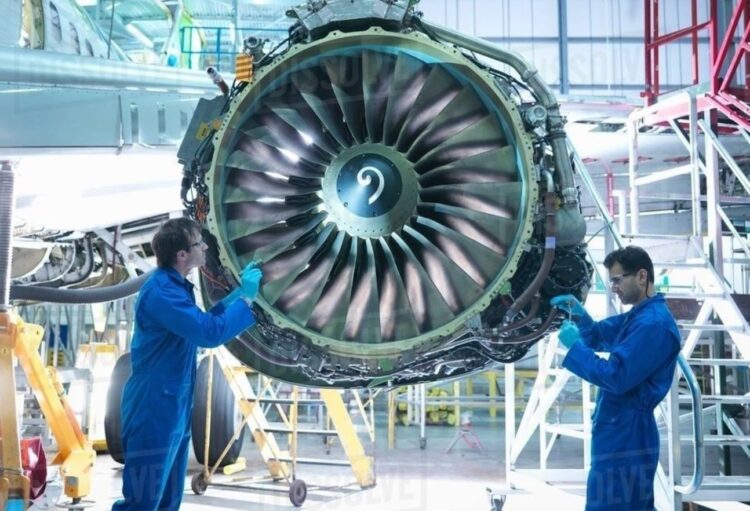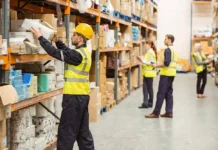
Sensitive products require temperature monitoring to ensure their integrity. Without proper environmental conditions, such products can spoil or be damaged rendering them useless for their purpose. This creates a loss of inventory and additional costs. It is vital to always have sensitive assets in controlled settings. In this article, we will look more closely at what temperature monitoring is and how it impacts four major industries where it is required.
What Does Temperature Monitoring Entail?
Temperature monitoring devices record and track air temperature values. These devices are typically installed in temperature-controlled settings such as cold rooms, freezer rooms, refrigerators, and freezers that store assets that can spoil or lose their effectiveness if not kept at a consistent temperature. Depending on the specific application, temperature monitoring devices are set to release an alert if temperature values fall outside of a pre-programmed and acceptable range. These devices also can be equipped with software that permits instant downloading of environmental data to a smartphone or computer for further analysis. Companies such as Dickson provide digital data loggers that, when coupled with environmental monitoring software, are generally considered the industry standard for temperature monitoring.

The Type of Equipment That Monitors Conditions
Typically, a data logger is the device of choice to monitor environmental conditions. These small electronic boxes contain instruments and probes that can measure air temperature, humidity, and pressure. A data logger contains an on-board processor that retains a certain amount of this data for retrieval at a later time. Also, these devices are designed to withstand temperature, humidity, and pressure extremes so that they can continue to accurately record data. They are reliable and can issue alerts when conditions are not compliant with preprogrammed ranges. In other words, a data logger is the eyes and ears of companies that use them in extreme conditions to monitor those conditions. When conditions become unsafe for the storage or transportation of these goods, a data logger can prove to be as valuable an asset as the materials it is protecting through regular monitoring.
Where Temperature Monitoring Is Used
Four major industries rely on consistent temperatures to keep sensitive products safe for use. They include the food, medical device, pharmaceutical, and aerospace industries. Each industry has specific needs related to temperature monitoring.
1. Food and Beverages

Food and beverages can be severely impacted by inconsistent temperatures. This includes products that require refrigeration and those that do not. For example, perishable food items must remain in cold storage to prevent the development of bacteria that can be harmful to consumers. The US Food and Drug Administration advises that food products that normally require cold storage can spoil in as little as two hours at room temperature. At the other end of the scale, food items such as chocolate will melt at extremely high temperatures. In addition, products that do not require refrigeration may still experience a reduction in quality and shelf-life if stored in warm to hot temperatures.
2. Medical Devices

Certain types of medical devices can be sensitive to temperature extremes. For example, some medical devices require storage in colder temperatures to maintain sterility. Other medical machines operate best when used in temperature-controlled settings. Examples include ultrasound equipment along with other diagnostic tools that require constant cooling to ensure optimal performance. MRI environments also require cooler temperatures to operate reliably. When these devices and electronics are compromised with temperature extremes, they do not function properly. Accuracy in hospital patient care and diagnosis is crucial, so it’s important that medical equipment always work properly—and that often means cooler temperatures are necessary.
3. Pharmaceuticals

To maintain drug safety, environmental controls are essential. They also ensure the quality and efficacy of the drugs in storage. Due to the sensitive nature of many prescriptions and vaccines, correct temperature values must be maintained while they are in storage or transport. Pharmaceuticals are not just reliant on safe temperature conditions, either. Many drugs and vaccines require storage that limits humidity changes, light exposure, and physical stress limitations. However, temperature and humidity are the two main factors that can damage drugs and vaccines if not monitored properly. For example, some vaccines and pharmaceuticals must be stored where temperatures are kept between 35F and 46F (2C to 8C).
4. Aviation and Aerospace

The aerospace industry deals with temperatures that are at a very far end of the scale compared to the other industries listed above. The components used in aerospace are manufactured and maintained under heavily-regulated guidelines. Temperature monitoring is an essential piece of the puzzle to ensure quality and the meeting of regulatory standards. The risks are too great should aerospace parts not meet these standards-equipment failure has enormous human as well as financial costs. Even small temperature or humidity fluctuations can hamper the construction of airplane parts by affecting the structure of metals being used. Even after the airplanes have been built, environmental conditions must be monitored. Without consistent temperature and humidity, some parts can break down resulting in malfunctions that could otherwise be avoided.
In Conclusion
Four major industries rely on the accuracy of environmental monitoring. Without such monitoring, sensitive assets can spoil or breakdown rendering them useless. In the food industry, bacterial growth is the main culprit that can be warded off with correct temperature storage. Medical devices require cooler temperatures to ensure that diagnostic equipment works properly and provides the data required for quality patient care. In pharmaceuticals, temperatures beyond acceptable limits can damage the effectiveness of certain drugs and vaccines, which all require storage in cooler settings. And the aviation industry uses higher temperatures for the manufacturing of plane parts, but extreme values can cause materials to break down and malfunction. Fortunately, there are tools available to keep temperatures in check. Data loggers help keep thousands of products safe to use.






